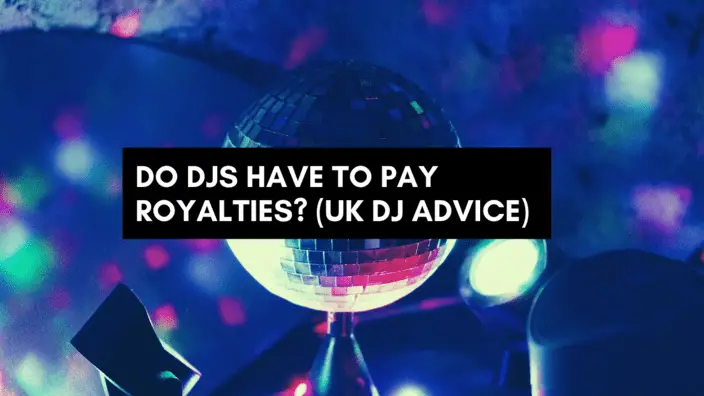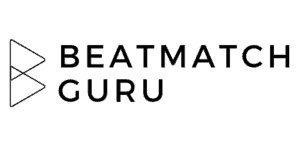
Becoming a DJ in the United Kingdom is not that difficult, but there are various factors you need to take into consideration when starting your disc jockey journey. From equipment to music, you need to make sure everything you are doing falls on the right side of the law.
Do DJs have to pay royalties? Yes. A digital licence can be purchased, which will allow the DJ to play selected tracks while serving as a DJ in an establishment.
This article will explain what a digital DJ licence is, the cost associated with obtaining the licence, how many songs you can use, what you can do with the music under the licence, and how much you can expect to make as a DJ.
What is a Digital DJ Licence?
A digital music licence allows a person to play copyrighted music. It allows a DJ to copy tracks from original CDs, vinyl, or other media to their computer’s hard drive. This means they can keep a backup of the tracks. Generally, the hard drive backup is to be used for vinyl emulation software while working as a DJ.
Another thing to consider is digital music. This licence also covers music purchased through online services and downloaded in MP3 format. The only way a DJ licence is not required to play tracks is if the music tracks state that public performance is allowed.
In the UK, licences must be purchased from the Phonographic Performance Limited (PPL) and the Mechanical-Copyright Protection Society (MCPS). In the past, licences had to be purchased separately from these organisations and had a list of caveats. In 2008, however, that all changed when the PPL and MCPS created a joint licence – the ProDub Licence.
How Much Does the ProDub Licence Cost?
There are different costs with the ProDub Licence because it has various tiers that you can purchase. Those tiers are outlined in the following chart:
| Songs Copied Per Annum | Price |
| 1-1,000 | £85.11 |
| 1,000-5,000 | £212.77 |
| 5,001-10,000 | £255.32 |
| 10,001-15,000 | £297.87 |
| 15,001-20,000 | £340.42 |
This licence is much more affordable compared to what the cost was previously. At one point, DJs had to pay £200 to PPL alone to use up to 20,000 songs – even if they only needed to use 1,000.
This new licence pricing allows DJs to pay only for what they need. The £85.11 package would be perfect for a DJ just starting to test the waters, and they could increase their number of tracks down the line.
Some things you need to know about owning a digital DJ licence are:
- Commercial music across all formats is included.
- The DJ does not have to apply for individual product clearances.
- The DJ does not have to report which music they are using. They only need to purchase the correct package for the number of tracks they will be using.
- The DJ places the order online for the licence, and it can be paid instantly by debit card, allowing them to start working straight away.
- Cheques can also be used to pay for the licence.
- The DJ cannot give copies of the music away for promotional purposes.
- The licence excludes the use of unauthorised arrangements, adaptations, and parodies.
- Derogatory uses of the music are not permitted.
- The music cannot be copied for retail or promotional purposes.
- The DJ cannot upload songs to any website, FTP server, or even a shared network.
Several things can and cannot be done with a digital licence, but if the disc jockey sticks to the terms and conditions, they should have no issues.
Other Costs Associated with Being a DJ
Obtaining a licence to become a DJ is only the tip of the iceberg. You still need to get equipment. There is plenty of equipment that needs to be purchased before you can begin entertaining. Additionally, you must figure in funds that you can use for marketing.
Some of the costs associated with setting up your DJ business are:
Laptop
First, you must have a laptop that will be able to handle the software being used to emulate the vinyl, so for this, it’s probably worth spending a bit of money to make sure the laptop is suitable for your DJing needs and durable because it will move around from location to location.
The last thing you need is a laptop that starts to fall apart under the pressure of being moved around. Additionally, if the computer crashes while at an event, it would look bad on the DJ because the music would stop until the issue is resolved.
Digital DJ Controller
A digital DJ controller is a must-have, as well. You can purchase them for as little as £80 or as much as £3,000, but it would be wise to understand what features you would use before making the purchase. Think about whether you could use some more premium features down the line and whether your budget fits a more expensive model.
Headphones and Microphones
Headphones and a microphone are necessary if you plan to take your DJ business to nightclubs, and that will include getting the highest-quality hardware. The going rate for each is around £100 for high-quality ones that are made for use in nightclubs
Turntables
Turntables are not as common as they once were, but some locations still require a hired DJ to use them. Like the controller, these range from cheap to high cost, so be sure to understand whether you need the features on the more expensive models.
Speakers and Lighting
Speakers and lighting are essential to a DJ’s set-up. This is because many events you could be working on will be in locations that are being transformed into the party for the night. It depends on what look you’re going for at events, but a versatile set of lighting that can be tailored to the customer’s needs is a must. The speakers also need to be good, or people won’t enjoy the music
Funds for Marketing
You should also set aside funds for promotion, including marketing on social media and even money for a DJ manager if you plan to become a professional DJ. Many DJs have managers who handle getting gigs, and they will take a percentage of your earnings, per a contract that will be drafted up.
Insurance
Depending on the type of gigs the DJ is working, insurance could be a must. Having a plan for what you would do in case any of your equipment fails, gets lost, or is stolen is a good idea. There are many insurance companies available to choose from. Pay attention to all the policy details before signing up to ensure you choose the one that is best for you.
How Much Do DJs Get Paid?
While the cost of becoming a DJ can be quite pricey, becoming a DJ also means you can earn good money. According to Bidvine, DJs get paid the following in the United Kingdom:
| UK National Minimum Cost | £220 |
| UK National Maximum Cost | £380 |
| UK National Average Cost | £300 |
| Average Range | £220-380 |
When first starting, a DJ will not get many gigs and must rely on self-promotion by performing free or at a reduced cost at events to gain popularity. However, there is excellent money to be made if you put in the work to become a popular disc jockey.
In Conclusion
Obtaining a DJ licence in the United Kingdom is one of the first things you should do to get your foot in the door as a disc jockey. Anyone who thinks they will make a good DJ will be able to get a fair shot at trying. However, it takes hard work, effective marketing, and determination to succeed as a DJ.
Related Questions
Do wedding DJs have to pay royalties?
The venue in which DJs perform should have a business music license that covers the DJs that play at their venues. Also because wedding receptions are classed as domestic occasions DJs themselves don’t require to pay royalties or buy a license.
